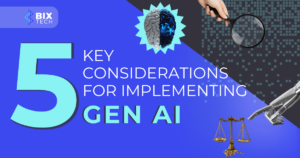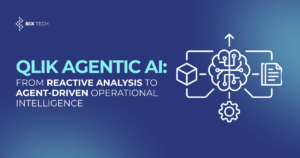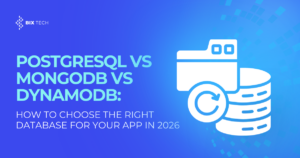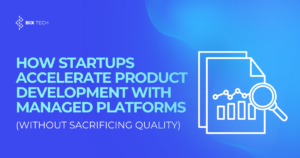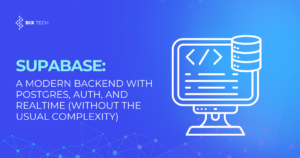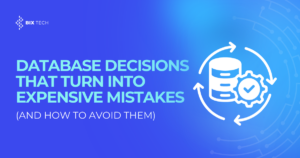Should Data Scientists Make the Leap to AI? A Data-Driven Career Guide for 2025

Sales Development Representative and excited about connecting people
Artificial Intelligence (AI) is no longer just a trendy buzzword—it’s reshaping industries, attracting massive investments, and transforming the technology job market. If you work in data science, chances are you’ve asked yourself: Should I pivot to AI before the opportunity passes by?
With global AI investment projected to reach $200 billion by 2025, and new AI-focused roles appearing across job boards, it’s only natural to feel the lure of this fast-evolving field. The promise of more opportunities, higher salaries, and the chance to work on cutting-edge technology is certainly appealing. But is jumping headfirst into AI the right move for every data scientist?
Let’s take a closer look at what this transition really means, how the demand for AI roles is changing, and what skills are most valued in today’s AI job market.
Data Science vs. Artificial Intelligence: More Than Just Buzzwords
Although data science and AI often get lumped together under the broader umbrella of "working with data," the reality is that they require distinct mindsets and expertise.
Think of it this way: a data scientist is like a mechanic who diagnoses issues, conducts analyses, and fine-tunes existing processes to optimize business outcomes. An AI specialist, on the other hand, is more like an engineer designing entirely new car models, building systems that can learn, adapt, and automate decisions. Both are essential, but their day-to-day responsibilities and required knowledge bases differ significantly.
If you’re considering a shift, it’s crucial to understand not only what excites you but also where your strengths and interests truly lie.
Is the Demand for AI Jobs Actually Increasing?
To separate fact from hype, let’s examine real job market data. Over the past several years, there has been a clear and sustained increase in listings for AI-focused roles. Companies in technology, finance, healthcare, and even manufacturing are investing heavily in artificial intelligence solutions to gain a competitive edge.
According to recent research, AI job postings have grown at a much faster rate than traditional data science roles. This includes roles such as Machine Learning Engineer, AI Research Scientist, and AI Product Manager. The surge is driven by organizations aiming to implement advanced automation, build smarter products, and unlock the full potential of their data.
If you’re looking to future-proof your career, building expertise in AI can open doors in nearly every sector. For a deeper dive into how AI is revolutionizing industries, check out AI-driven innovations in software development.
What Types of AI Jobs Are Trending?
The AI job landscape is diverse and rapidly evolving. Here are some of the most in-demand positions making waves in 2025:
1. Machine Learning Engineer
These professionals design and deploy machine learning models that automate predictions and decisions. They require strong programming skills, a deep understanding of algorithms, and experience working with large datasets.
2. AI Research Scientist
Research scientists focus on pushing the boundaries of machine learning and artificial intelligence. Their work is often academic in nature but has significant real-world applications—think natural language processing, computer vision, or reinforcement learning.
3. AI Product Manager
These roles combine technical knowledge with business strategy. AI product managers define the vision for AI-powered solutions, translating business needs into technical requirements and overseeing development from concept to launch.
Other emerging roles include AI Ethics Specialist, Computer Vision Engineer, and Conversational AI Designer. Many of these positions require not just technical depth, but also the ability to collaborate across disciplines and communicate complex concepts to non-technical stakeholders.
For more information on how language models and AI applications are impacting business, explore this comprehensive guide to language models and their business applications.
What Skills Are Most In Demand for AI Roles?
Transitioning from data science to AI isn’t just about learning a new toolset—it’s about adopting a new approach to solving problems. Here are the skills employers are seeking in top AI candidates:
- Deep Learning & Neural Networks: Proficiency with frameworks like TensorFlow or PyTorch is often essential.
- Programming: Python remains the language of choice, but familiarity with C++ or R can be valuable.
- Mathematics & Statistics: Success in AI requires a solid foundation in linear algebra, calculus, probability, and statistics.
- Data Engineering: The ability to wrangle, preprocess, and manage large-scale data pipelines is increasingly important.
- Domain Knowledge: Understanding the specific challenges and data types in a given industry—whether healthcare, finance, or retail—can set you apart.
- Soft Skills: Communication, teamwork, and adaptability are critical as AI projects often require cross-functional collaboration.
Staying ahead means not only mastering technical skills but also keeping up with trends and best practices in the field. If you’re curious about the broader impact of data science and how it fuels business transformation, take a look at how data science is revolutionizing business.
Should You Make the Pivot?
Ultimately, the decision to transition from data science to AI comes down to your personal interests, career goals, and willingness to invest in new skills. The AI field offers tremendous opportunities, but it also demands continuous learning and the ability to navigate complexity.
If you’re excited by the prospect of building systems that learn and adapt, enjoy tackling open-ended problems, and are ready to dive deeper into advanced algorithms, then now is a fantastic time to explore AI. On the other hand, if you thrive on extracting actionable insights from data and optimizing business processes, data science will remain a vital and rewarding discipline for years to come.
Final Thoughts
The lines between data science and AI will continue to blur as technology advances, but each path offers unique challenges and rewards. By staying informed about industry trends, investing in your education, and honestly assessing your goals, you can position yourself for a fulfilling and future-proof career—whether you choose to stay in data science, pivot to AI, or blend expertise from both worlds.
Ready to shape your future? The journey starts with curiosity and a commitment to continuous growth.



